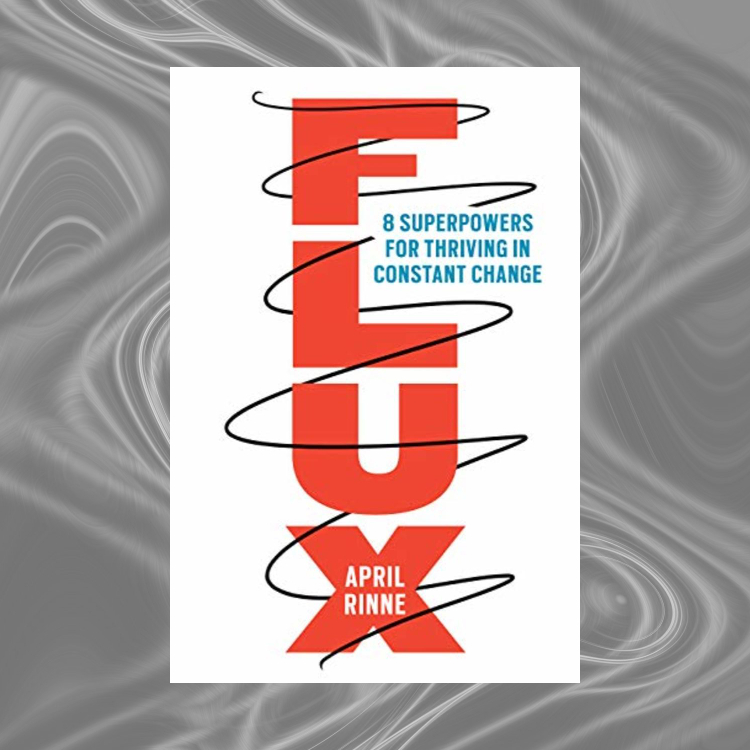
As a prolific nonfiction reader, I ask two questions of each new book I encounter:
- Will I enjoy reading it?
- Will any of the ideas stay with me? Will the book earn a permanent place not only on my bookshelf, but in my mind?
I can usually answer the first question by the end of the first chapter. The second one, about lasting impact, takes more time to assess. Many books are enjoyable to read, but fewer make a permanent impression in my thought processes.
That brings me to the new book by April Rinne, Flux: 8 Superpowers for Thriving in Constant Change. For this book, I can definitely answer Yes to both questions—and you probably will as well.
Back in the spring of 2020, during the early days of the pandemic, I had the pleasure of interviewing April Rinne as research for Get the Word Out. April embodies the idea of servant authorship that I write about in Get the Word Out—she has written this book to serve others as they deal with a world in constant change.
April kindly invited me to read a prepublication draft. So I read Flux last December, and have lived with its ideas all year. And hoo boy, has it been helpful!
About the book
This book is about adjusting your mindset for the world in which we live—one in which the pace of change is accelerating without any sign of letting up. The ideas in this book were relevant and useful before the Coronavirus pandemic threw nearly every prediction and plan into disarray. Now they’re even more critical.
The book’s introduction includes a simple exercise to write down everything that is in flux in your life, and to assess your emotional reaction to them. Doing that was an eye-opener. I hadn’t even realized the baseline level of stress I was carrying around. (And I think of myself as a calm person.)
Many short, useful exercises like that throughout the book guide you to examine and shift your mindset around change and uncertainty.
Uncertainty is a difficult thing to manage. We often work hard to protect ourselves from uncertainty, but at great cost. Trying to control the future is a fool’s game, and we can waste more energy resisting change than adapting to it.
The answer lies in adopting a flux mindset. The eight superpowers of the title are really lenses that you can use to shift the way you approach uncertainty. Some may fit you more easily than others, although all are worth reading and absorbing.
The superpowers that have helped me so far
Here in late August, I can report that the book has helped me in a year in which nearly every plan is provisional. These are the three superpowers that have landed most permanently with me so far:
Run slower. When dealing with rapid and constant change, it pays to find a different pace. Slowing down has been perhaps easier during the pandemic. Now I find that I relish a slower tempo in my life. I’m not ready to give it up if and when the world resumes its usual frenetic pace.
Know your enough. The world is always pressing us to do more and optimize everything. Why, in fact, do I need to take the most efficient route driving some place? And the value of my day cannot be found in the number of tasks I manage to check off. This chapter is filled with advice for identifying what’s important, what’s enough, and putting aside the gnawing sense of scarcity that often chases us.
There’s also a wonderful play on words if you say the chapter title aloud: Know you’re enough. You are enough.
Let go of the future. If the last year has taught us anything, it’s to avoid hard-and-fast plans for nearly anything. I have become more intentional about releasing my attachment to plans and outcomes. The book suggests we shift from predicting the future to preparing for it, however it unfolds. This mindset has been invaluable in the last year. It’s a gift.
It’s time for me to revisit the book and see if I can adopt more superpowers, because the world isn’t getting any more certain.
If you’re feeling flummoxed, anxious, or otherwise disconcerted about the near and distant future, give yourself the gift of this book.
Related Content
Listen to or read the transcript of my interview with April last spring